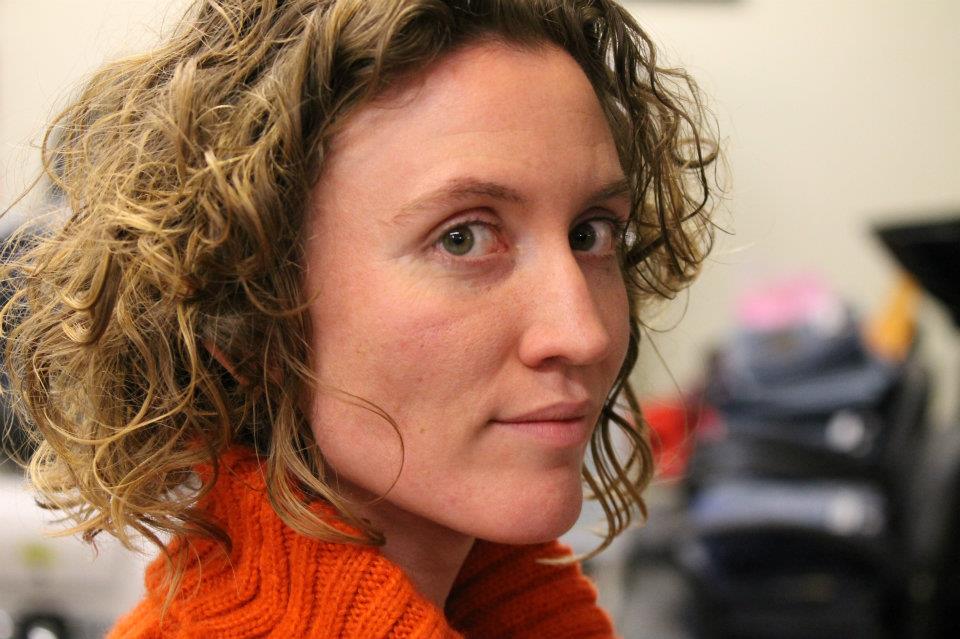|
I just enrolled my daughter in Kindergarten at Agnes Cotton Elementary School in San Antonio, TX.
First, let me say that it was a great experience--the staff was wonderful. The principal was attentive and kind to every parent. Everyone was Texas-Nice. That was a welcome surprise compared to the charter schools I tried to get into (we are still 150th on a waiting list somewhere!). My residency and immunization forms were not A+ work, but they smiled and helped me out. On one form I had to admit that my daughter was (shhh) white*. Minutes later I regretted sharing that tidbit of information when I chatted with one of the smartest, most charismatic women in the room. She was playfully teasing me about my daughter's name**, which I much prefer to the awkward silence and, "Oh...k" when they try to pronounce it. Turns out the woman is a kindergarten teacher. I hoped my daughter would have the good fortune of being in her classroom. Nope. She's the bilingual teacher and will only be working with the lucky Hispanic children. We chatted about the possibility of immersing my daughter into the Spanish language; she talked about the benefits of knowing more than one language. Of course, we agreed, there are a million reasons to speak, write and read both Spanish and English. And that's when I felt it. The discrimination. One third of the students at my daughter's school will be learning two languages, while my daughter, because of her unfortunate place of birth, will just be learning how to apply extra layers of sunscreen. Knowing only English, she won't have a chance at the extra income and opportunities almost guaranteed to her bilingual peers. My husband and I should have agreed to only speak Spanish in our household since her birth. We could have. We would have if we had known that growing up in a Spanish-speaking home was the only way she would qualify for this free education. I'm not complaining. I believe there are solutions and that we have the power to create and implement them. Solution 1: Make all San Antonio public schools Spanish Immersion schools. Teach kids equally. If necessary, give extra support in English or Spanish according to the needs of the students. Give kids a relevant education! White* kids are waiting in 3 year lines to get into Spanish Immersion schools when the public schools already have the staff, the curriculum and the infrastructure to share this education with all. Solution 2: Stand up for your unique culture. This is TEXAS, right? Be proud of your heritage and your language. Rather than asking the Federal Government for hand-outs because of the large Spanish-speaking population, USE IT. The school administration knows how valuable Spanish is; demand that Standardized Tests be provided in multiple languages, or that bilingual schools be allowed to opt out. Let your test scores reflect the true academic prowess of your bilingual students. Your students are SMART and LUCKY! Stop making the Spanish language an excuse. You can't be a victim over something that white* kids want, pay for and fight for. You can't be a victim over something that gives you an increase in pay. Solution 3: Offer 30 minutes a day of Spanish as a Second Language to interested students. Offer a complementary Spanish class for parents in order to reinforce the concepts and give the English-speaking children a chance to succeed in the lovely City of San Antonio. I will be brushing up on my Spanish, and I will be speaking to you and my child in Spanish. The next time you hear "Si" coming from my mouth, please know that I'm not trying to spell CAT. If Spanish is the only way to get ahead in this town, then count us in. *English-speaking children **Frankincense: ˈfraNGkənˌsens; an aromatic gum resin obtained from an African tree and burned as incense. The Magi (/ˈmædʒaɪ/ [1] or /ˈmeɪdʒaɪ/; Greek: μάγοι, magoi), also referred to as the (Three) Wise Men or (Three) Kings were, in the Gospel of Matthew and Christian tradition, a group of distinguished foreigners who visited Jesus after his birth, bearing gifts of gold, frankincense and myrrh. They are regular figures in traditional accounts of the nativity celebrations of Christmas and are an important part of Christian tradition. |
Angela's Musings about Public Education, Web Design, Business.
|

 RSS Feed
RSS Feed